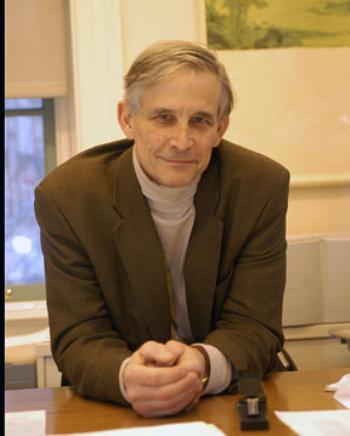
Pen and Paper Revolutionaries: Bringing Up Baby Theory; Professor Helps His Criticism Come of Age
Ecocritics like to cause trouble. During the early 1990s, an avant-garde movement in literary scholarship gained widespread attention for its antagonism toward traditional methods of analysis. Since then, “ecocriticism” has only grown in influence, and John P. Marquand Professor of English Lawrence Buell, Chair of the English Department, is at the forefront of the movement.
The movement began as a reaction against critical theory. Its founders wanted to return to a model of thinking about what environmental writing does that “credits its power to capture the nature in words,” Buell says. “A good piece of writing gives you back the world word through the word world. You can’t think about the environment without making it more than just a self-contained intellectual exercise in a bubble.”
In his most recent book, Writing for an Endangered World, Buell argues that in fiction the environment is more like a character than a background or setting. “There’s no piece of literature ever written that doesn’t in some sense have an environmental dimension,” Buell said. “All writing is situated.”
Since Buell and his ecocentric peers combine literary works with theoretical works from many other disciplines, the field influences arenas beyond the literary—including even political thought.
Tovis Page, a PhD student in the Religion Department, has worked closely with Buell as a research assistant and teaching fellow. “Ecocriticisms’ claim that depictions of ‘the environment’ in texts are significant in themselves, not just as mere ‘settings’ for human dramas, is itself ground breaking,” Page wrote in an e-mail.
Because the school of thought is only fourteen years old—a baby in the world of literary movements—it’s future is unclear. But Buell’s current project, a tool-kit for explaining this new vein of literary criticism, looks to codify the movement: focus on some of its main issues, unify its goals and make it accessible to the public. Buell is helping ecocriticism come of age.


